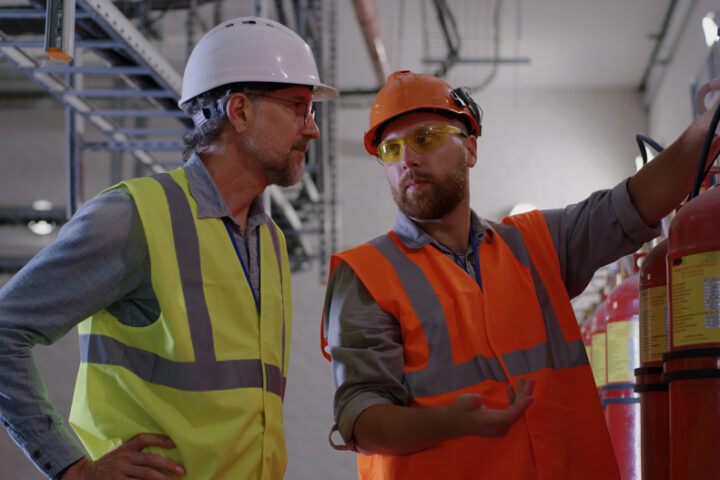Maintaining a safe and secure workplace is a top priority for businesses in all industries. Whether it’s protecting employees, safeguarding sensitive information, or ensuring compliance with regulatory requirements, thorough background checks are essential. Advanced screening methods, such as an enhanced DBS check, provide organisations with detailed insights into a candidate’s history, enabling informed hiring decisions and reducing workplace risks.
In this article, we explore the importance of advanced background checks and how they contribute to creating safer and more efficient workplaces.
The Need for Comprehensive Background Checks
When hiring new employees, it’s vital to go beyond the surface to understand their qualifications, character, and potential risks they might pose to the organisation. Basic background checks often provide limited information, which may not be sufficient for roles that involve high levels of trust or responsibility.
Comprehensive checks help:
- Mitigate Risks: Identify individuals who may pose a threat to workplace safety or reputation.
- Ensure Compliance: Meet industry-specific regulations and legal requirements.
- Protect Assets: Safeguard intellectual property, financial resources, and physical assets.
- Build Trust: Foster a workplace culture of accountability and reliability.
Understanding Enhanced DBS Checks
An enhanced DBS check (Disclosure and Barring Service check) is a more in-depth screening process that provides detailed information about an individual’s criminal record. This type of check is particularly important for roles that involve working with vulnerable groups, such as children or elderly individuals, as well as positions that require a high level of trust.
Enhanced DBS checks include:
- Convictions, Cautions, Reprimands, and Warnings: Details of any criminal history.
- Barred List Information: Information about whether the individual is barred from working with vulnerable groups.
- Relevant Local Police Information: Additional details provided by local police forces if deemed relevant to the role.
Benefits of Advanced Background Checks
- Enhanced Workplace Safety By thoroughly screening candidates, employers can identify potential risks and ensure that only trustworthy individuals join their teams. This reduces the likelihood of incidents such as theft, harassment, or violence in the workplace.
- Improved Hiring Accuracy Advanced checks provide a clearer picture of a candidate’s history and suitability for the role. This helps organisations avoid costly hiring mistakes and ensures the right person is chosen for the job.
- Compliance with Regulations For industries such as healthcare, education, and finance, compliance with background screening regulations is non-negotiable. Enhanced DBS checks help businesses meet these requirements and avoid penalties.
- Protection of Vulnerable Groups Roles involving contact with children, elderly individuals, or other vulnerable groups require stringent screening. Enhanced checks ensure that unsuitable candidates are identified and excluded from these positions.
- Safeguarding Organisational Reputation A single hiring misstep can damage an organisation’s reputation. Advanced background checks protect businesses from reputational harm by ensuring candidates meet high ethical and professional standards.
Industries That Benefit from Enhanced DBS Checks
Certain industries have a higher need for advanced background screening due to the nature of their work. These include:
- Healthcare: Ensuring that medical professionals have clean records and can be trusted to provide care.
- Education: Protecting students by verifying the suitability of teachers and school staff.
- Finance: Preventing fraud by screening employees handling sensitive financial information.
- Childcare: Ensuring the safety of children by screening nannies, daycare staff, and other caregivers.
- Non-Profits: Verifying volunteers and staff working with vulnerable populations.
Implementing Advanced Background Checks in Your Organisation
To maximise the effectiveness of background checks, consider these best practices:
- Define Screening Requirements Identify the level of screening needed for each role based on its responsibilities and potential risks.
- Partner with Trusted Providers Work with reliable screening providers to ensure accurate and thorough checks, including enhanced DBS checks where necessary.
- Ensure Candidate Consent Inform candidates about the screening process and obtain their consent before conducting checks.
- Maintain Data Privacy Handle sensitive information securely and comply with data protection regulations such as GDPR.
- Review and Update Policies Regularly review your background screening policies to ensure they align with current regulations and industry standards.
Addressing Challenges in Background Screening
- Balancing Thoroughness and Timeliness While comprehensive checks are essential, delays in the hiring process can be costly. Choose providers who offer efficient screening services without compromising accuracy.
- Avoiding Discrimination Ensure that screening policies are applied consistently to all candidates, regardless of background, to avoid claims of bias or discrimination.
- Interpreting Results Effectively Not all findings in a background check automatically disqualify a candidate. Assess the relevance and context of any flagged information before making a decision.
The Future of Background Checks
As technology continues to advance, the process of background screening is becoming more efficient and accurate. Key trends include:
- AI and Automation: Leveraging artificial intelligence to analyse data quickly and identify potential risks.
- Global Screening: Expanding checks to include international records for candidates with global experience.
- Continuous Monitoring: Ongoing checks to identify risks post-hiring, ensuring long-term workplace safety.
Conclusion
Advanced background checks, such as an enhanced DBS check, are indispensable tools for reducing risks in the workplace. By thoroughly screening candidates, organisations can ensure compliance, protect vulnerable populations, and build a trustworthy workforce.
Investing in comprehensive background screening not only enhances workplace safety but also safeguards an organisation’s reputation and long-term success. As the need for robust hiring practices grows, adopting advanced background checks will remain a cornerstone of effective risk management.






